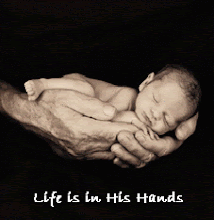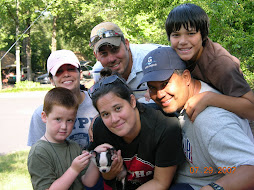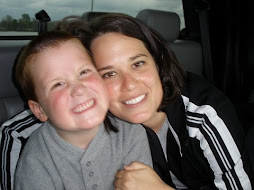More segments from "Total Forgiveness" by R. T. Kendall
Ephesians 4:30-32
And do not grieve the Holy Spirit of God, with whom you were sealed for the day of redemption. Get rid of all bitterness, rage and anger, brawling and slander, along with every form of malice. Be kind and compassionate to one another, forgiving each other, just as in Christ God forgave you.
The ultimate proof of total forgiveness takes place when we sincerely petition the Father to let those who have hurt us off the hook-even if they have hurt not only us, but also those close to us. The matter of getting rid and totally forgiving one another is difficult to deal with.
Totally forgiving someone doesn't necessarily mean we will want to spend our vacation with them, but it does mean that we release the bitterness in our hearts concerning what they have done. How has the Lord forgiven us? Unequivocally and unconditionally. Our sins, which are many, will never be held against us, and nobody will ever even know what all we have done.
Psalm 103:12
As far as the east is from the west, so far has he removed our transgressions from us.
If we follow the same principles with others as the Lord has with us....then we will not hold other people responsible for what they have done to us. We will hold nothing against them, and we will not tell other people , not even our closest friends, what they did to us.
Understanding What Total Forgiveness Is NOT:
1. Approval of what they did...God never approved of our sins. Just as God forgives people without approving of their sin...we must learn to forgive others. We can forgive those who have hurt us and not approve of the wrongs they committed against us or those that we love because this is the way that the Lord has dealt with us.
2. Excusing what they did...we do not cover for the sins of others nor do we point to circumstances in an attempt to explain their behavior....excusing their inappropriate behavior.
3. Justifying what they did...there is no way that evil can be justified. God never calls something that is evil...right and he does not require us to either.
4. Pardoning what they did...this would mean that we would have to release an offender from the consequences of their actions, such a sentence or penalty.
5. Reconciliation...reconciliation implies a restoration of a relationship or friendship after a quarrel. When a husband and wife totally forgive each other, it would mean a reconciliation but not always. The bitterness and desire to punish the other person may be gone, but the wish to restore things to the way that they were may not be necessarily be so strong. Reconciliation requires the participation of two people.
6. Denying what they did...denying the offense ever took place...for some reason...some people live in denial and they might refuse to admit or come to terms with the reality of a bad situation. It is sometimes too painful to face the facts and denial is the easiest way out. Even when the pain is pushed down into the cellar of our subconscious mind, it will still come out one way or another...often causing high blood pressure, nervousness, irritability or even a heart attack.
7. Blindness to what happened...some feel that if they offer forgiveness, they are turning a blind eye to, or ignoring, the offense and they believe that this would, in effect, be excusing a sin against God. Willful blindness is slightly different from repression. Blindness is a conscious choice to pretend that a sin did not take place; repression is usually unconscious and involuntary. However, both are wrong and can be psychologically damaging. Someone who is trying to forgive an offense, but is actually pretending that the event never happened, will eventually explode and become the offender themselves...all because they are not being true to the pain the original offense had caused.
Paul said that love "keeps no record of wrongs" I Cor. 13:5. He didn't mean that we have to be blind to those wrongs. True forgiveness of a wrong does not pretend that no wrong is there.
8. Forgetting...When someone says we must "forgive and forget"...I understand what they are saying but literally forgetting may not be realistic. It is usually impossible to forget meaningful events in our lives, whether positive or negative. Love doesn't erase our memories. It is actually a demonstration of greater grace when we are fully aware of what happened and we still choose to forgive. God doesn't literally forget our sins...He chooses to overlook them. He knows full well what we have done...every sordid detail, but He chooses not to remember so as to not hold our sins against us. This is the same thing that He wants us to do...although we might not be able to forget...we can choose not to remember. But even if we cannot totally "forget", we must not dwell on it.
9. Refusing to take the wrong seriously...We can't truly forgive until we see clearly the offense we are forgiving and understand its seriousness. Don't try to avoid the problem, thinking it would make forgiveness easier. There is no sin too great for God to forgive. God doesn't say to us..."Come now, my dear, that's not too bad. I can easily wash this sin away." No. He sent His Son to die for sin, and Christ's sacrificial death proves just how serious a problem sin is. God doesn't pass our sins off as inconsequential, yet He forgives. Totally.
10. Pretending we are not hurt...It is ridiculous to think that we should have to keep a stiff upper lip when we have been injured by a spouse's infidelity...or betrayed...or molested...or unjustly criticized. God let David know how grieved He was over the king's sin of adultery and murder. God didn't pretend not to be hurt.
For me...I learned so much about myself and what true forgiveness is all about. Please hang in there with me as I move along through this book and continue to share my story and God's healing power through forgiveness.
Next Entry: Total Forgiveness: Part III...What Total Forgiveness IS














.jpg)



from_debra.jpg)




























